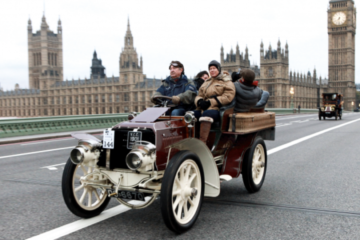“To initiate a war of aggression”, the Nuremberg Tribunal declared in 1946, “is the supreme international crime”. The Crime of Aggression targets the leaders most responsible for initiating a war that manifestly violates the UN Charter’s proscription of the use of force. Russian President Vladimir Putin’s war on Ukraine fits that description. The key to punishing Mr Putin and his advisers in the Kremlin for the carnage in Ukraine is the Crime of Aggression. What exactly is it and why is it so important?
The Crime of Aggression is the idea that launching an illegal war itself, not just the crimes committed during its course, deserves retribution. It was the brainchild of an ingenious Soviet jurist, Aron Trainin, who believed that Nazi Germany’s highest political and military leaders should be tried for launching the Second World War. “Crimes against peace”, the term he coined which later became known as crimes of aggression, was enshrined in the Nuremberg Charter and helped deliver condign punishments to Nazi bigwigs.
In recent weeks, a groundswell of support has arisen for Mr Putin to be prosecuted for the Crime of Aggression. The Rome Statute, the founding treaty of the International Criminal Court (ICC), which tries individuals, stipulates that persons who direct the political or military action of a state are liable for prosecution under the Crime of Aggression. This restriction of criminal responsibility to the top brass means that this is the most relevant offence for which Mr Putin and his closest advisers could be indicted. It would also be easier to charge him with starting the war than to prove that individual war crimes are linked to specific orders issued by him.
However, the ICC lacks the capacity to investigate the Crime of Aggression in Ukraine because of a legal nicety. Enjoying its heyday during the Nuremberg trials, the Crime of Aggression receded into oblivion during the Cold War. The adoption of the Rome Statute in 1998 raised hopes that launching a war of aggression would henceforth be punished. But the ICC’s jurisdiction over the Crime of Aggression is so restricted that such hopes have proved illusory. The Court’s purview is limited to countries which have ratified its Statute or accepted its jurisdiction. The ICC is also expressly precluded from investigating the Crime of Aggression against any individual who does not belong to a State Party.
Ukraine recognises the ICC’s jurisdiction—this gives the court the right to investigate war crimes, crimes against humanity and genocide in Ukrainian territory. But Russia does not: it umbrageously withdrew its signature in 2016 after the ICC published a report calling its annexation of Crimea an occupation. This means that the ICC cannot investigate the Crime of Aggression committed by Russia, effectively letting Mr Putin and his chums off the hook. Though the option of securing a referral from the UN Security Council exists on paper, Russia would veto any such move.
Surely, a court that is unable to prosecute the individuals directly culpable for waging a ghastly war is not fit for purpose. Appeals for a Nuremberg-style special military tribunal vested with the authority to prosecute the Crime of Aggression in Ukraine have grown louder. Even if such a tribunal is established (and that’s a big if), Russia would not vouchsafe any recognition. As things stand, the masterminds of the sanguinary violence being unleashed in Ukraine are likely to enjoy impunity for years to come. Even though lesser generals further down the chain of command might face trial in The Hague years later, Mr Putin and his intimate associates mass-murder Ukrainians with sangfroid. Meanwhile, Trainin would be turning in his grave.


